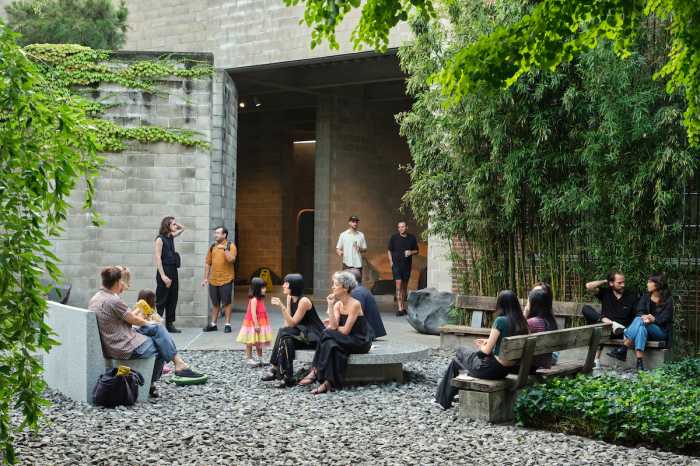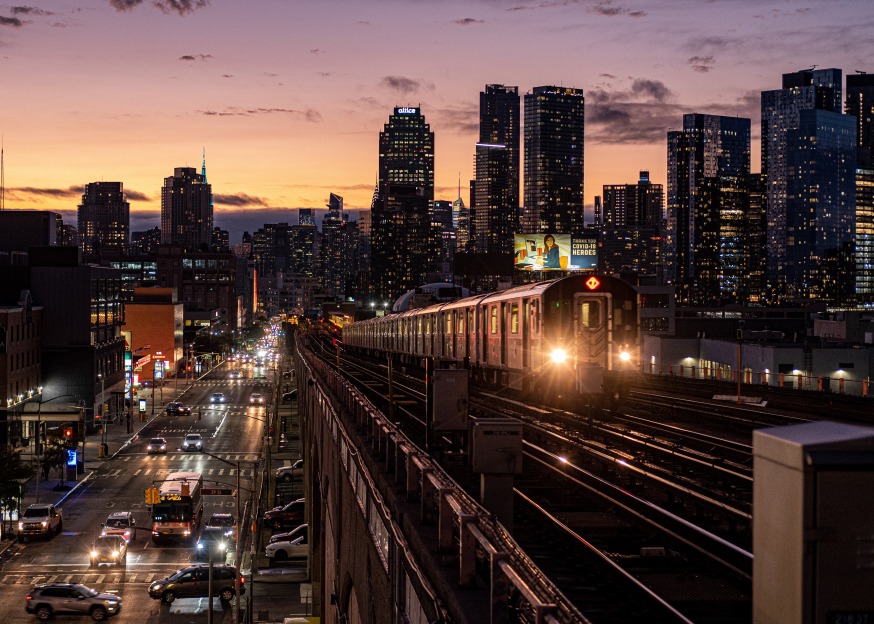
Queens Boulevard in Long Island City (Photo by Harry Gillen on Unsplash)
Sept. 1, 2021 By Allie Griffin
Rental prices in Queens have shot back up to near pre-pandemic levels, according to a new report.
The average amount paid to rent a studio, one-bedroom or two-bedroom apartment in the borough was close to what was charged in February 2020 — the last full month prior to the outbreak of COVID-19 — according to a report released this week by the real estate company MNS.
Queens’ rental prices took a sharp decline shortly after the pandemic broke out in March 2020. The pandemic prompted an exodus of residents and a drop off in apartment demand.
But prices have been marching higher over the past 12 months.
The average amount paid to rent a Queens apartment in August 2021 was $2,323, up from $2,238 in August 2020, according to MNS’ Queens Rental Market Report. The average rent in February 2020 — which was pre-pandemic — was $2,347.
The trend has held true for units no matter their size — whether it be a studio, one-bedroom or two-bedroom apartment.
The average rent paid for a studio apartment in Queens this August was $1,885 — up 2.8 percent from $1,833 in August 2020, the report states. This average rent this August was only $22 less than the February 2020 figure of $1,907.
Meanwhile, one-bedroom and two-bedroom apartments have also seen a strong come back.
The average rent for a one-bedroom apartment rose by 4.6 percent over the past year. In August, one-bedrooms went for $2,227 — up from $2,129 in August 2020. The average rent for a one bedroom this August was close to the February 2020 figure of $2,249.
The average rent for a two-bedroom apartment was $2,858 in August — an increase of 3.9 percent from a year earlier when the average rent was $2,750, according to the report. The August figure is only $30 less than the average rent paid for a two bedroom in February 2020 of $2,885.
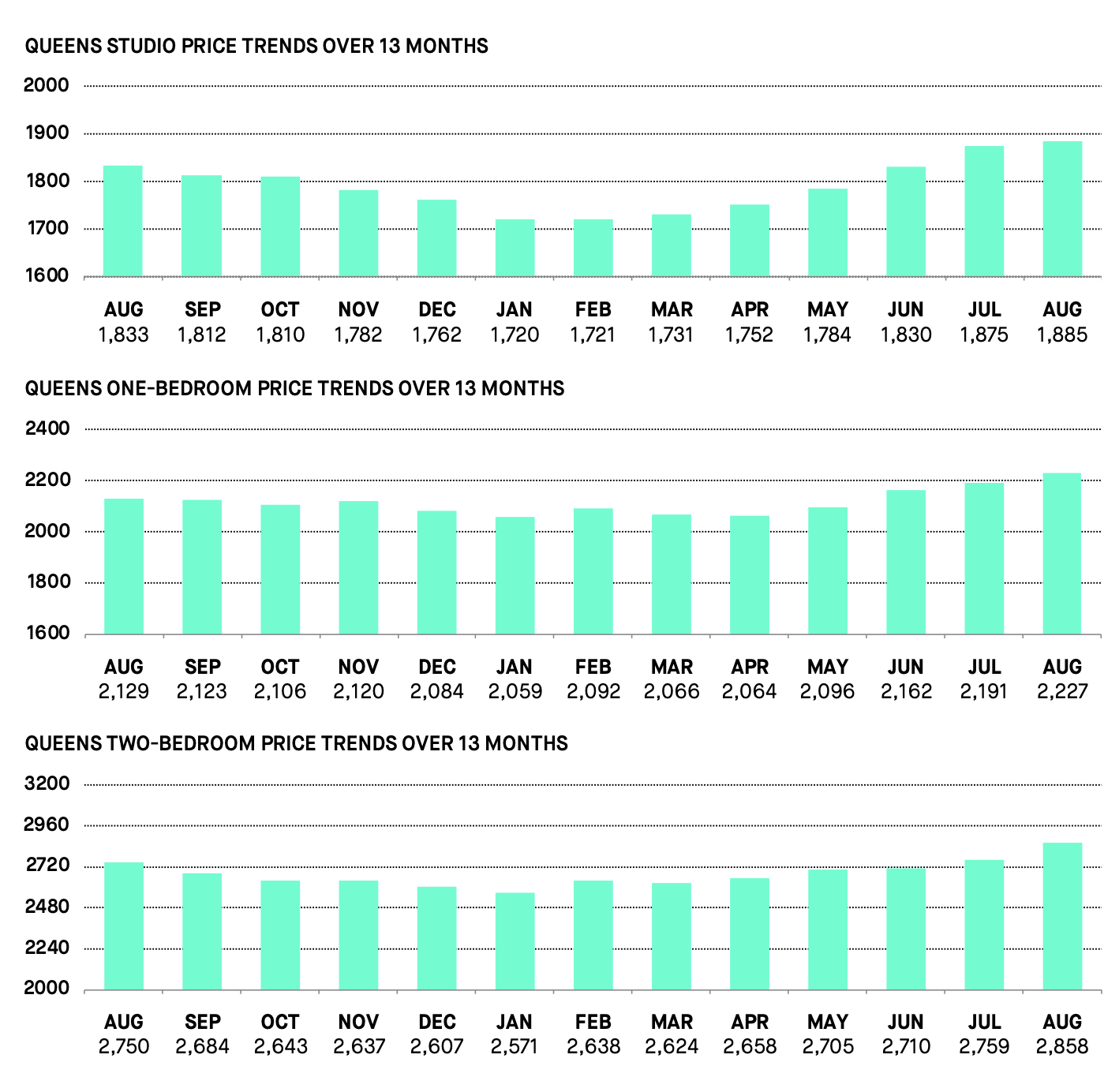
(MNS)
Some neighborhoods, however, have proven to be more resilient than others.
Places like Long Island City, Jamaica and Ridgewood saw rent prices shoot back up to pre-pandemic levels, while rents in areas such as Astoria and Jackson Heights have yet to fully recover.
Astoria
Average rent prices in Astoria are still less expensive than they were pre COVID-19 and the neighborhood saw little price changes year over year.
The average rent paid for studio apartments in the neighborhood was $1,899 last month — just $9 more than the average amount in August 2020, but slightly less than the pre-pandemic amount. The average rent in February 2020 was $1,951 for studios.
One-bedroom apartments in Astoria went for an average of $2,055 in August compared to $2,067 for the same month last year. Still the prices have not risen to pre-pandemic prices when a one-bedroom cost $2,270 on average in February 2020.
Two-bedroom units have also been slow to rebound. The average rent of such units was $2,492 last month — less than August 2020 when it was $2,562 and February 2020 when it was $2,662.
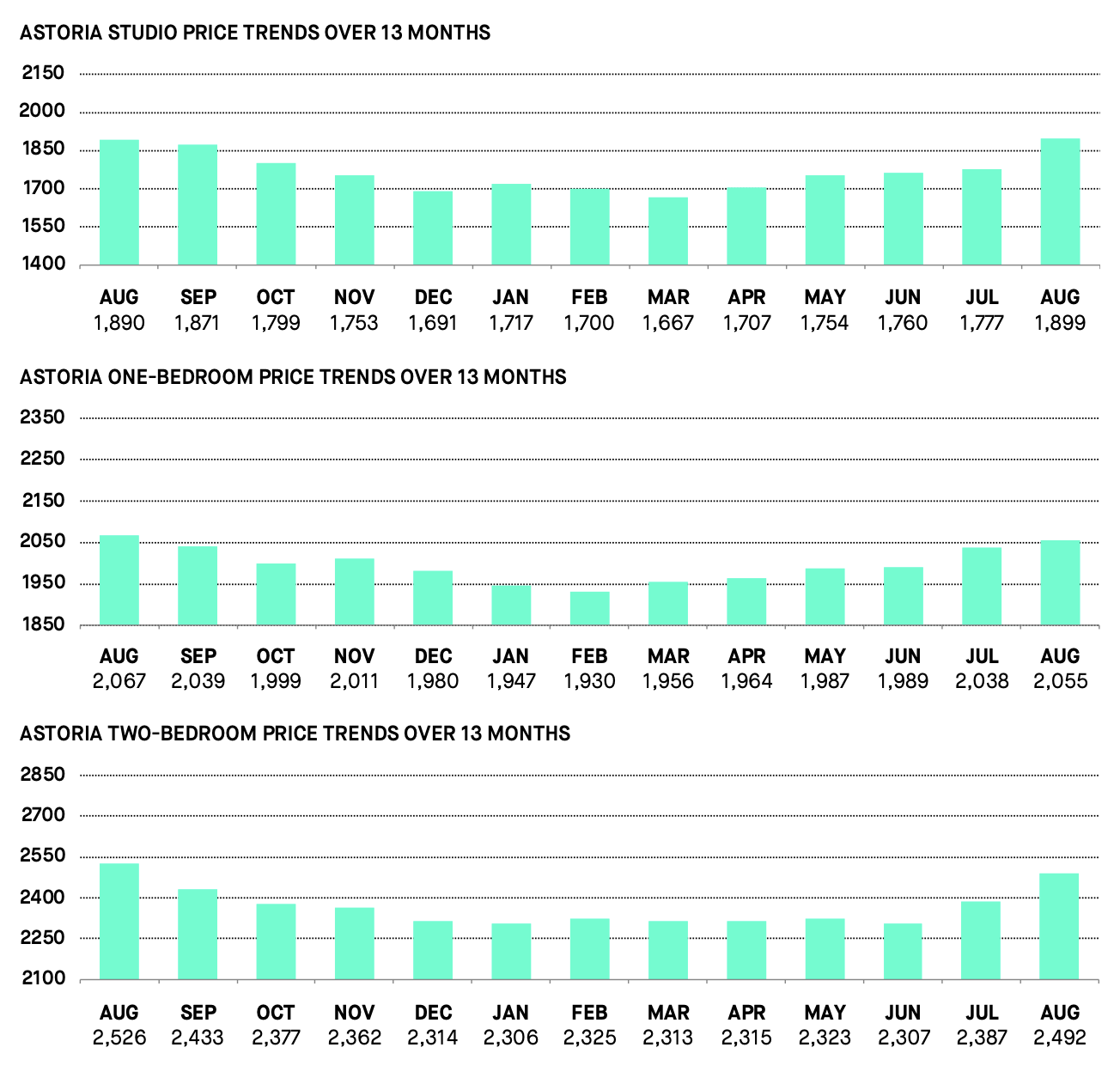
(MNS)
Long Island City
Meanwhile Long Island City rental prices — which experienced the greatest drop in rental prices when the pandemic peaked — have shot up to pre-pandemic levels.
Rents on average increased a whopping 14.5 percent year over year, according to the report.
For instance, the average rent of a two-bedroom apartment in the neighborhood shot up by $667 from last year. Two-bedroom units went for $4,583 on average last month — up from $3,916 in August 2020 and more than the pre-pandemic average of $4,444 in February 2020.
One-bedroom and studio apartments in LIC also saw average rent hikes of $405 and $270 respectively year over year and one-bedroom units surpassed their average pre-pandemic rents.
A one-bedroom apartment cost an average of $3,302 to rent last month versus $3,243 in February 2020.
A studio cost an average of $2,681 to rent last month — more than the February 2020 cost of $2,658.
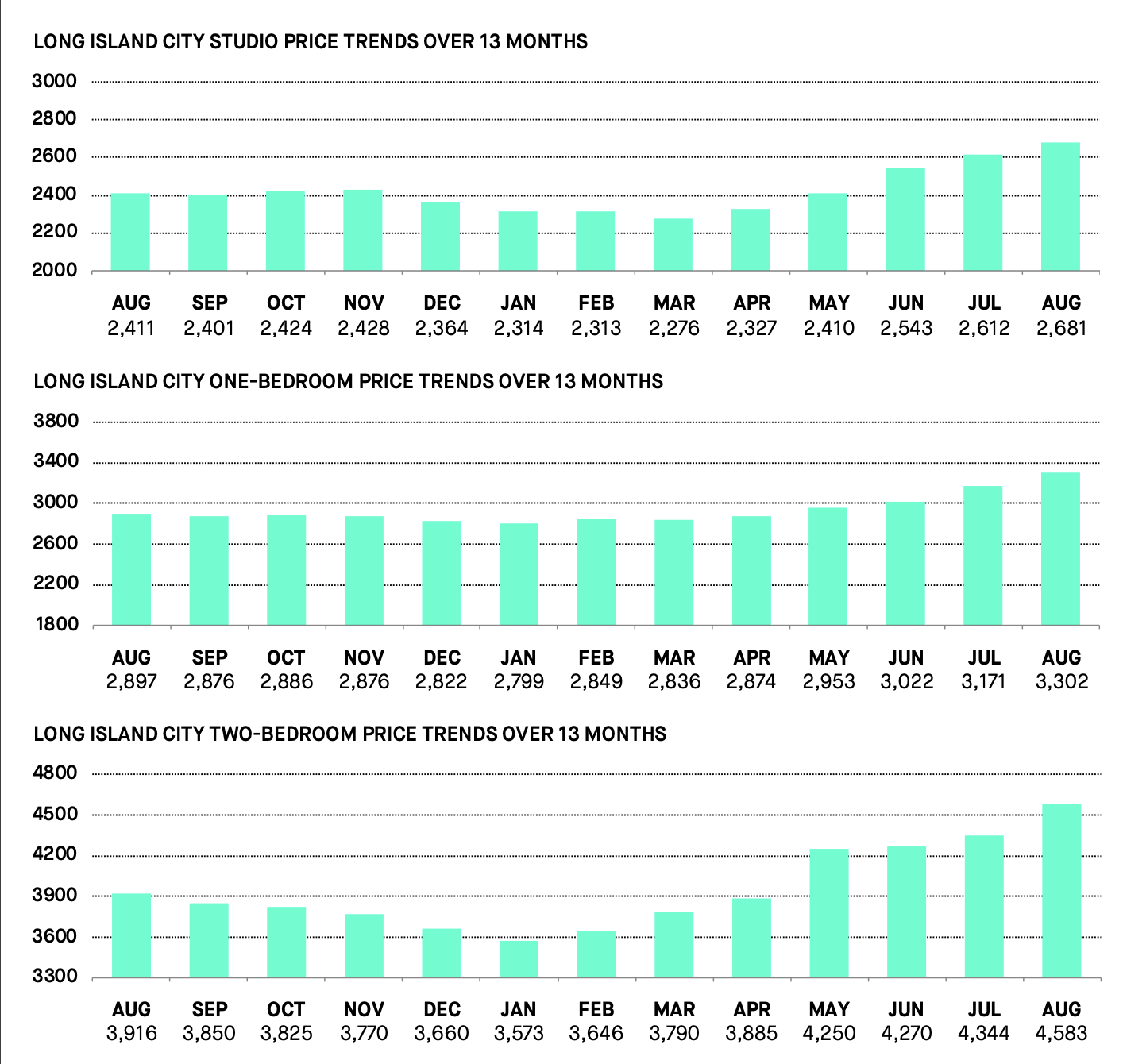
(MNS)
Ridgewood
Ridgewood rent prices also shot up to nearly the same as pre-pandemic levels or higher.
The average costs to rent a studio or one-bedroom apartment in Ridgewood surpassed pre-pandemic prices, while the average rent for a two-bedroom in the area still remains lower than before COVID-19.
However, all three types of apartments in the neighborhood saw a significant uptick in rental prices from last year.
Studio apartments in Ridgewood were listed at an average of $1,997 last month compared to $1,742 in August 2019 and $1,925 in February 2020.
One-bedroom apartments saw a similar increase in cost.
One-bedrooms went for an average of $2,260 last month — $259 more than a year earlier when they were going for $2,001 on average, the report states. They also cost more than they did before the pandemic. The average rent in February 2020 was $2,134.
Meanwhile, two-bedrooms in Ridgewood increased in price year over year, but the rents have yet to reach pre-pandemic costs.
The average rent for a two-bedroom last month was $2,317 — more than the average of $2,258 in August 2020 but slightly less than the average of $2,350 in February 2020. 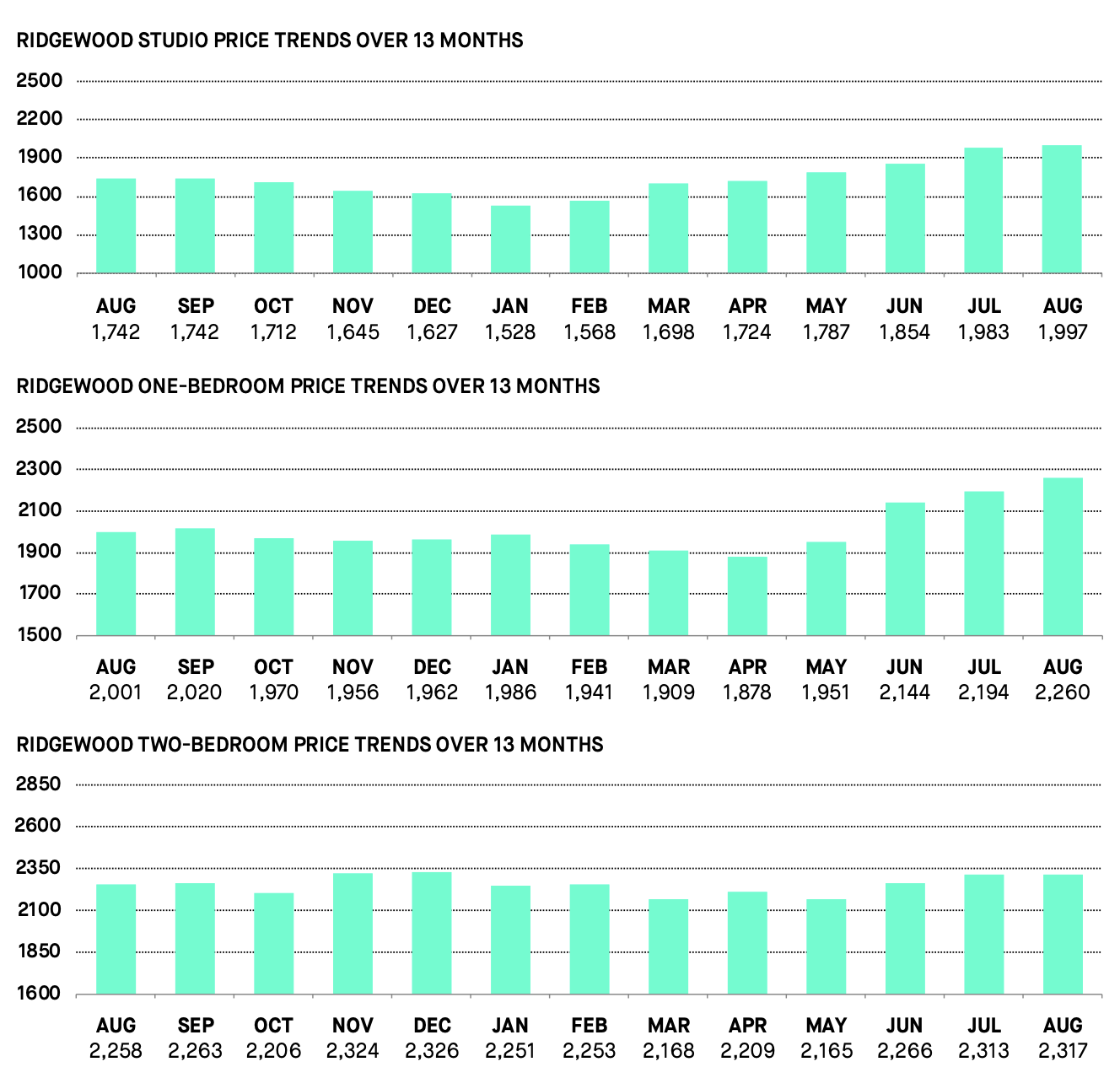
(MNS)
Jackson Heights
Like Astoria, Jackson Heights was another Queens neighborhood that has seen the cost of rent rise, but not yet return to pre-pandemic levels. The area saw little fluctuations in rent prices year over year.
Average rent prices across the board remained lower last month than they were in February 2020, before the COVID-19 outbreak took hold of the city.
The average rent paid for a studio apartment in Jackson Heights last month was $1,633 less than the average, $1,637, in August 2020 and $1,751 in February 2020.
The average rent of one-bedroom apartments in the neighborhood increased slightly to $1,892 last month from $1,867 in August 2020. However, it still lower than $1,972 — the average cost in February 2020.
Lastly, two-bedroom apartments went for $2,411 last month — up from $2,389 a year earlier, but less than $2,678 — the average cost in February 2020.
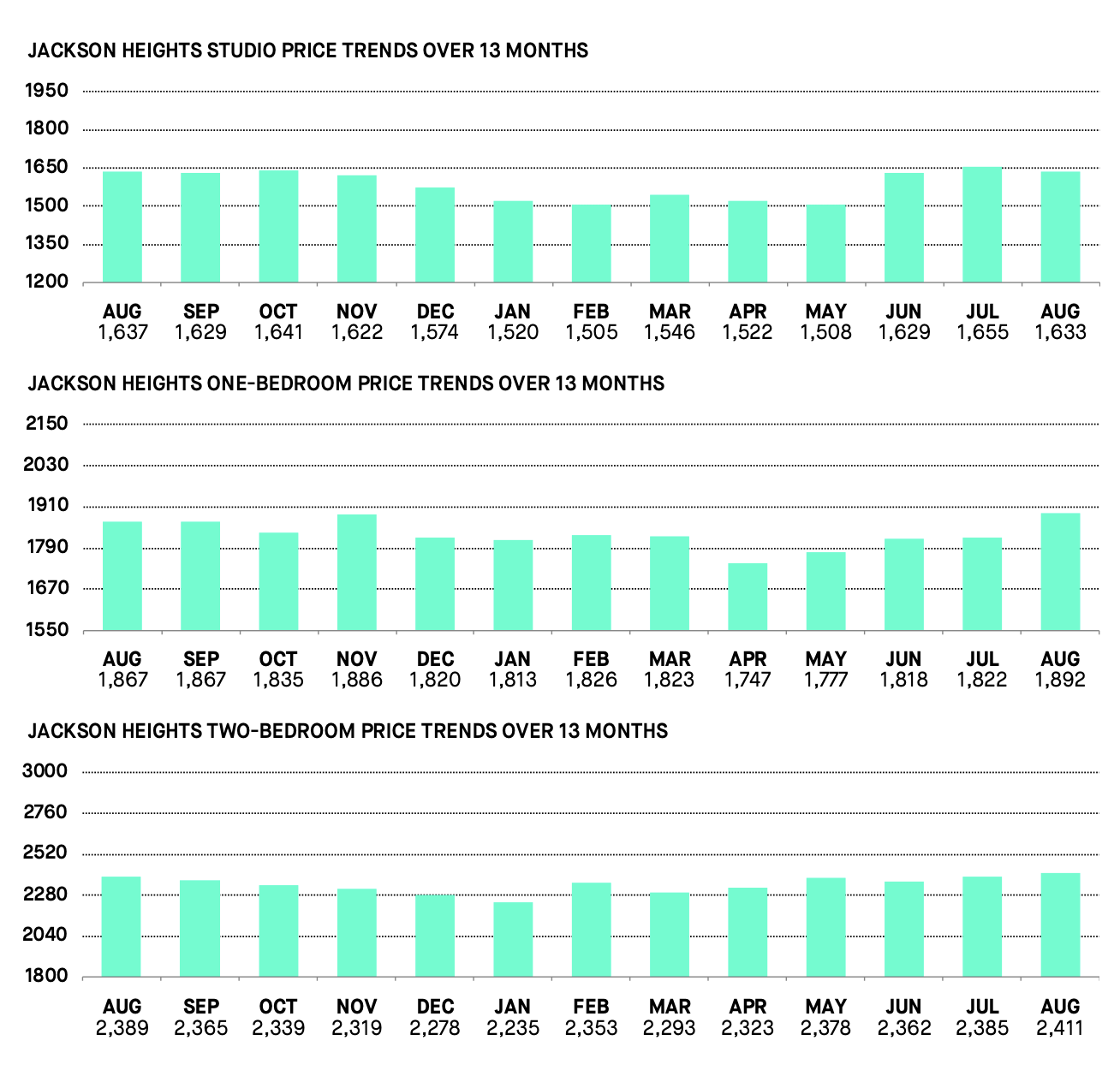
(MNS)

